Advertisement
The Making Of 'Screwball,' A Comedy Documentary About Steroids And Baseball
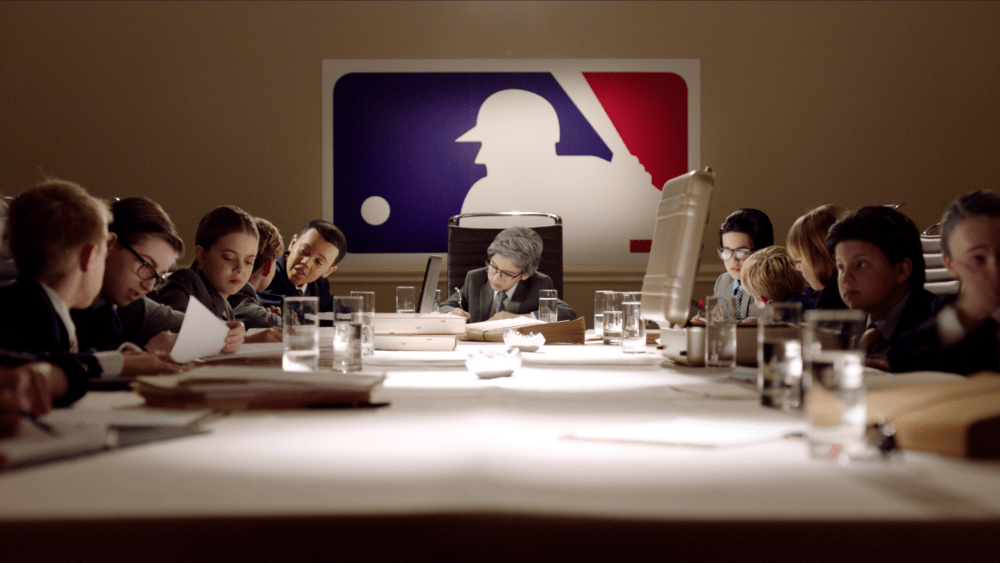
Billy Corben is a documentary filmmaker who’s lived all his life in Miami. His media studio, Rakontur, is basically known for two things: movies about drugs, like 2006’s "Cocaine Cowboys," and movies about sports, like "The U" and "The U Part 2," both produced for ESPN.
"Yeah, we tell a lot of stories about Miami, drugs and sports — which are all very interconnected themes," Corben says.
Corben’s latest movie is about all three. It’s called "Screwball," and it’s already won the Audience Awards at the Key West and Miami Film Festivals.
"Screwball" features a cast of lip-synching actors and tells the story of the fall of the Biogenesis AntiAging Clinic in Miami, where Tony Bosch provided performance-enhancing drugs to dozens of athletes, including the man who was then the highest- paid player in Major League Baseball history: Alex Rodriguez.
KG: So, as I understand it, the seed for this movie was actually planted when A-Rod contacted you, is that right?
BC: Yeah, I was approached by A-Rod's publicist in November 2013. The story of the Biogenesis steroid scandal broke earlier in 2013 when the Miami New Times had this sensational report which blew the lid off of this operation. And among the marquee names was Alex Rodriguez.
The publicist said, "Alex is going to be on a break from the arbitration, and he would like to meet with you and talk about the possibility of some kind of tell-all documentary" — I think is how it was teased to me. And so I figured, "OK. My producing partner, Alfred Spellman, and I will meet with A-Rod — you know, real quiet, you know, hush hush, top secret." And so they said, "No. Meet us at high noon at Hillstone restaurant on the most prominent corner of the city, right on Miracle Mile and Ponce de Leon Boulevard."
Like, the power lunch spot in the city. Every seat is taken. Three deep at the bar. There's, like, floor-to-ceiling windows and then an open kitchen. So, literally, from the street to the dishwashers in the back, everybody can see everything happening in this dining room. And Alfred and I walk in, and we're escorted down the center aisle to the back-middle booth, which is literally on a step. It's, like, on a stage. We had to step up to join A-Rod where he was holding court with his publicist and friends. And all eyes were on us, and we sit down with Alex.
Advertisement
So we spent about 90 minutes with him, where he lied to us about basically everything. It turns out that we were just, kind of, pawns in his PR offensive against Major League Baseball at that time. Because I spent the next seven months or so corresponding with the publicist about an interview that never happened. That was the end of A-Rod's involvement with the project. But not the end of the project.
KG: You decided to do this anyway. So, was Anthony Bosch already on your radar? Because he seems like totally the kind of guy in your wheelhouse.
BC: Oh, hell yeah. I mean, this guy was a Miami creature if ever there was one.
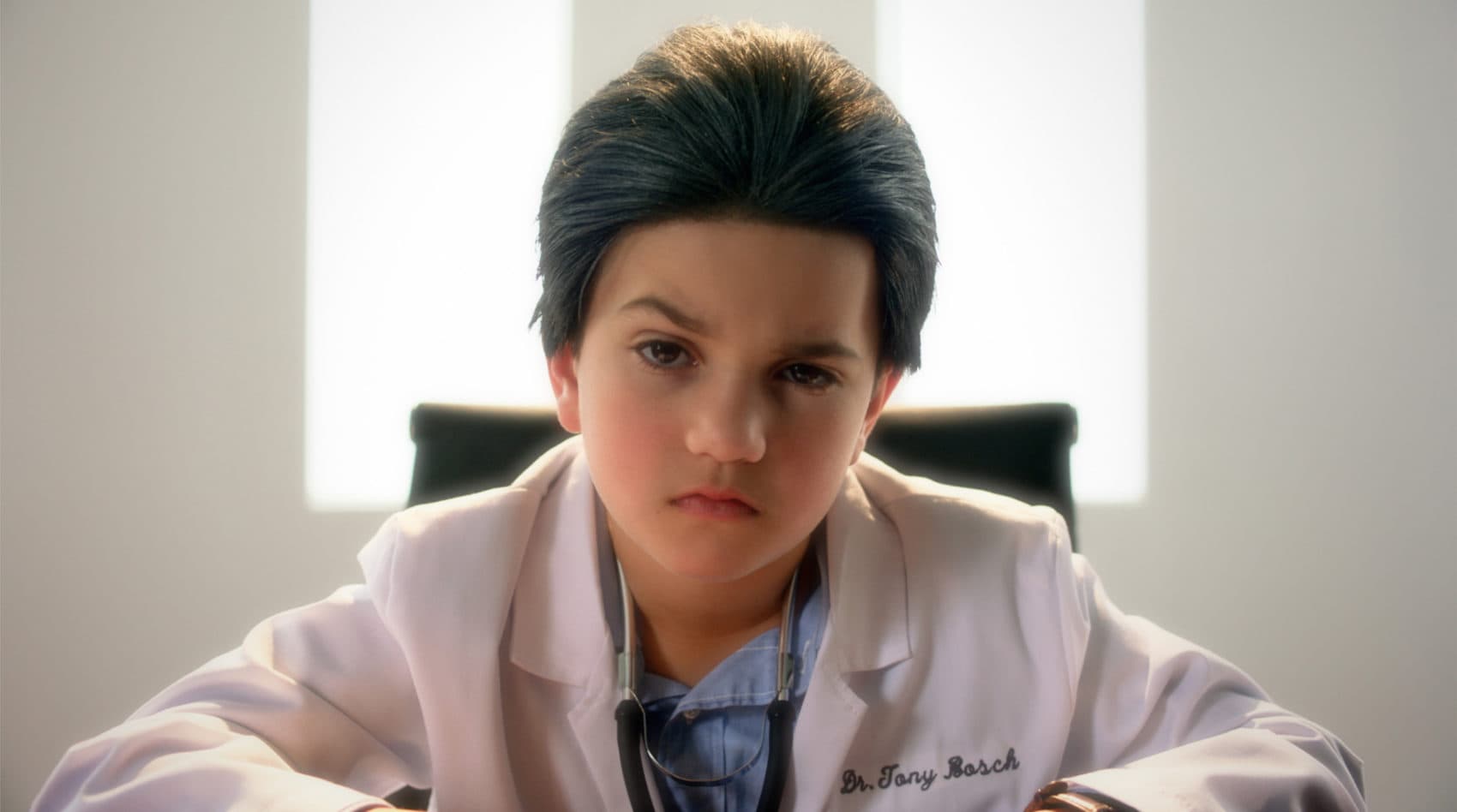
Tony, of course, was this fake doctor. He doesn't like when I call him that — he prefers the term "unlicensed physician." But the truth is that he did not study medicine in the United States, and he was not licensed to practice it in the United States.
KG: So, what happened? Did you call Tony Bosch up and say, "I want to put you in a movie?" How'd that go down?
BC: It's almost crazier than the A-Rod thing, believe it or not. This was almost exactly a year after we had met with Alex Rodriguez. And now we get a call from Tony Bosch who says, "I'd like to meet with you and discuss the possibility of doing a documentary." And after several meetings and a couple months, Tony goes to federal prison.
So, once again, we decided to move on and back burner this project. And believe it or not, not even a month after that, I get an email from Tim Elfrink, who was the investigative reporter who broke the scandal. He said, "Listen, I got a call from Porter Fischer," — who was the whistle blower — "And he would like to talk to you about the possibility of doing a documentary." And I was like — I'm not a very spiritual guy, but I took pause. And I said, "If ever the universe was trying to tell us something. I mean, the three central figures in this epic, international baseball scandal, all independent of each other, called us. Somebody is trying to tell us to make this documentary."
And we decided to, right then and there. Tony got out of prison. And we interviewed Porter Fischer, we interviewed Tony Bosch and quickly realized from talking to them that the story is not about A-Rod. Don't tell him that, but it's not about A-Rod. It's really about this Elmore Leonard, Carl Hiaasen, Coen brothers-esque Florida f-ery — I'll say, for terrestrial radio. That was the story to us. These crazy characters and the fact that the career of the highest paid baseball player in history was ended over a $4,000 debt between a cocaine-addicted fake doctor and his fake-tan-addicted steroid patient. That, to me, was the story, and so that's the story we ultimately pursued and told in "Screwball."
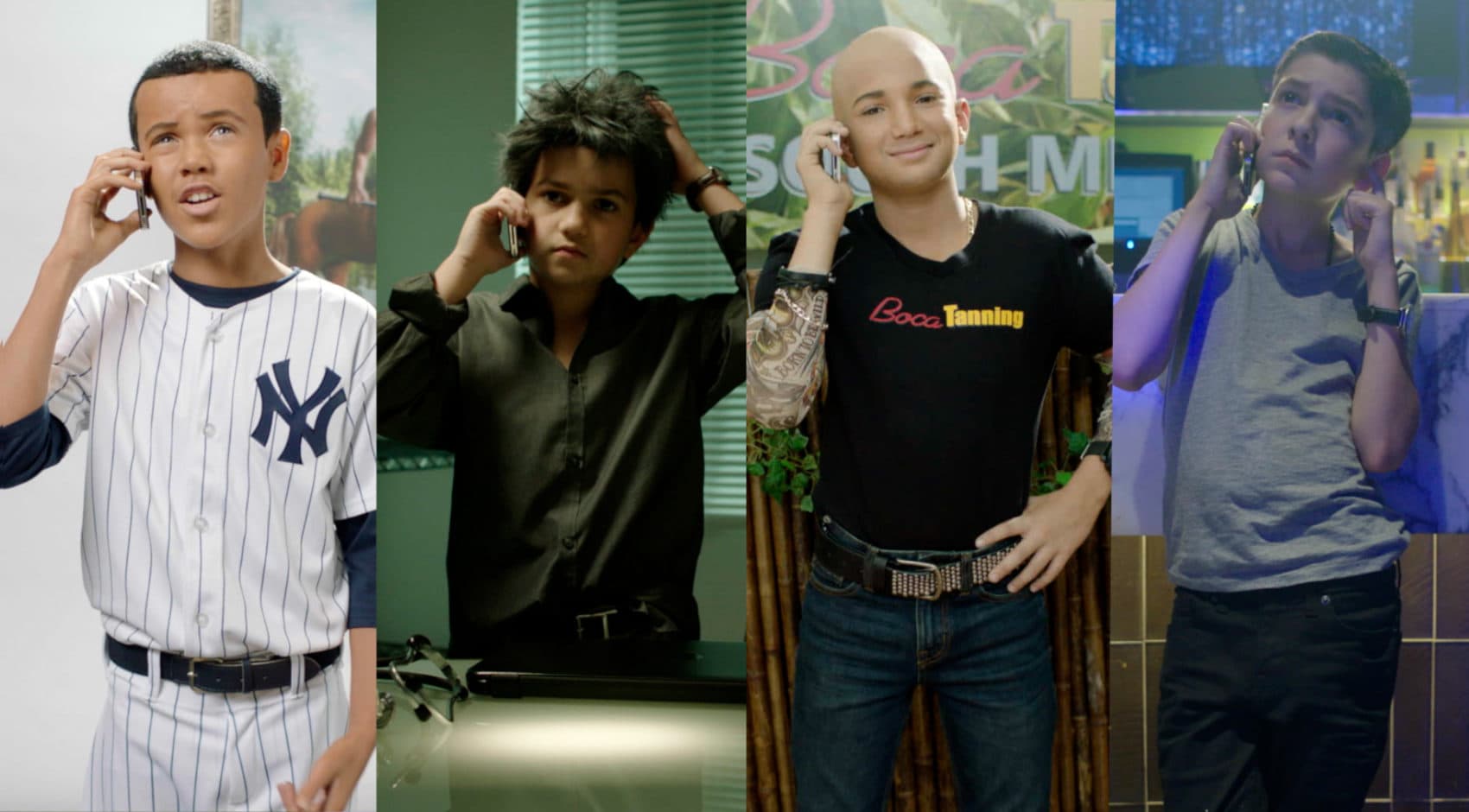
You know, we've made a lot of sports documentaries. And something like "The U" or "The U Part 2," it's a pretty straightforward, borderline paint-by-numbers exercise. Not to belittle the angst of making a documentary, but you interview players, you interview coaches, they talk about games and you show footage from those games. The thing is, "Screwball" is not about sports. It's certainly sports-adjacent. But they might mention — over the hour and 40 minutes of the movie, they mention three different baseball games. There's one game against Kansas City after Tony Bosch starts treating A-Rod when he hits three home runs in that one game.
That’s seconds out of the whole thing. So we realized all of this story takes place in nightclubs and locker rooms and hotels and in these shady clinics, and so there's no footage of that. We're gonna have to hire actors to recreate these scenes so we have something to cut to beyond these talking heads.
And then listening to the way Tony Bosch told a story and Porter Fischer told a story, who are our two primary narrators, I said, "Oh, they're so vivid and in the moment." When they tell a story, they do it, for example, "I walked into his office, and I said ‘I want my money.’ " ... Both of them spoke like in dialogue.
KG: So take me to the moment when you had the idea to use actors to help you tell this story. Where were you, and what made you think of that?
BC: Drunk. I was drunk, obviously. If that isn't abundantly clear, I don't know what is. Both of them spoke, like, in dialog. And I was, like, "Oh, wow, we could Drunk History this."
OK, we need to pause here for a second to explain Drunk History. It started out on YouTube, but it was so popular that it became a show on Comedy Central. And basically, someone — usually a comedian — gets really drunk and explains some historical event.
Then, actors are brought in to lip synch the dialog the drunk people are imagining the real life historical characters might have said.
So Billy Corben decided to “Drunk History” the dialog in his movie — with one pretty big difference.
BC: It dawned on me that, well, everybody acted like children. Actually, worse than children. Because I feel like there's such a level of disregard for authority and the rules and just selfishness. And they're worse than children. It's not even fair. So I thought, "Wouldn't it be funny if the actors were kids?" Literally 8-, 9-, 10-year-old kids — with facial hair, dressed as cops, in lab coats, with stethoscopes, pinstripes, Yankee uniforms.
There was some inspiration for this and some foundation for it. In 1997 — this is one of my favorite music videos of all time; I'll never forget the first time I saw it — Spike Jonze, the director, was faced with a unique challenge: he had to produce a posthumous music video for Biggie, who had recently been murdered, for the song "Sky's the Limit."
And so what he decided to do was just to do a straightforward, classic, archetypal Bad Boy Records, hip-hop music video of the mid-late ’90s — with the fancy cars, the Versace clothes, the mansion the pool, the girls — but everybody was 8 years old.
https://www.youtube.com/watch?v=d3vOeCkeCNA
He had a baby Biggie lip synching, a baby Puffy, a baby Busta Rhymes, a baby Lil' Kim. Always held that in the back of my mind that that would be a really interesting approach someday. And you can't just do it for anything, you know. "Cocaine Cowbabies" would not be appropriate, for example.
KG: All right, after you came up with the idea and before you actually found the kids and started shooting it, you must have sobered up and told someone your plan. How did that conversation go?
BC: I was bullish on it. I was psyched, man. You can imagine. Sobered up the next day, and I was, like, "I think it's still a good idea." And they agreed. And I think they knew we were desperate. We needed something. We needed an idea. We needed to do re-creations. And re-creations are hard, you know? To make them look good, to have them stylistically incorporate into your documentary seamlessly. So we needed a bold idea.
It's pretty out there. And, listen, the thing was always called "Screwball." That was always our approach to the story. Whenever we make a documentary, like with "Cocaine Cowboys," we say, "This isn't just a documentary. What genre is this movie?" So "Cocaine Cowboys," we said, "This is a gangster movie." So we made it that way. And same thing here with "Screwball."
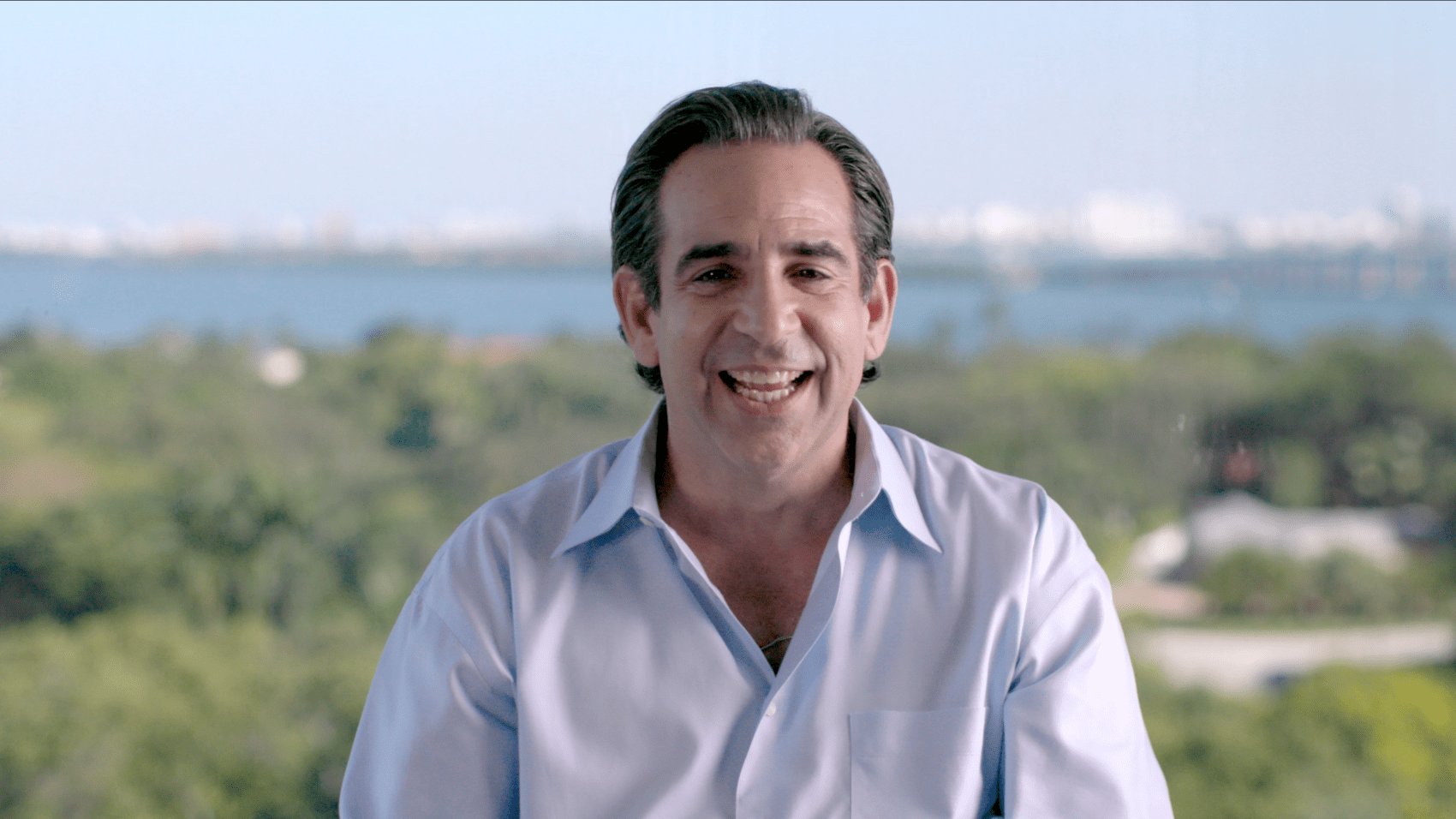
We're like, "This is a comedy, so let's make it like a comedy." So every decision we had to make aesthetically would hopefully support the tone. And we went through a lot of trouble to make it happen, so I hope it worked.
KG: So how do you go about casting, like, a 10-year-old A-Rod? What is that process like?
BC: Yeah, well, we kind of did it secretly. We changed the names in the script. We didn't want anybody to know what we were doing, and we wound up with his incredible cast of the most professional, responsible kids who had a very challenging part, which was to not only memorize lines but to be able to deliver them exactly the way the interview subjects originally said them. And then to be able to lip synch them in perfect time.
KG: Was there ever a moment when you were watching this and thinking, "Oh no, this isn't gonna work?"
BC: I didn't have time for that. It was only later when I was like, "What did we do?" 'Cause when you're on set, you have a 10-day schedule and all these pages to shoot. And there's all these costumes and make-up tests, and there's art directors that are recreating these locations — if you're not totally confident about it, you certainly have to appear that way as the director.
Because you're piloting the ship, man, and everybody's looking at you going, "Is this right? Are we doing this right? Is this good?" I'm like, "Oh, yeah. Yeah, totally. Totally good. Totally right." And I'm like, "Who the hell knows?" I guess, you know, comedy's in the eye of the beholder. I mean, I thought it was working. I had a good feeling.
KG: Take me to when you finally got to show the results to someone else. Was that another nerve-wracking moment?
BC: Yeah, I was excited about it, a little hesitant — and people just started laughing, which was what I hoped would happen. And I didn't care if they were laughing with us or at us at that point. That's the thing with docs, too — and I notice this when I go to film festivals — documentaries tend to be really serious. The audiences tend to come in thinking, "All right, this going to be about drugs and baseball. This is a doping documentary. This is going to be serious and intense."
And so you need to give the audience, almost, permission to laugh. And it's been a lot of fun touring around the world with it and watch the audience laugh and gasp and giggle and heckle, you know, yell at the screen. It's a lot of fun.
KG: Well, audiences are loving it. What do you think A-Rod would make of it?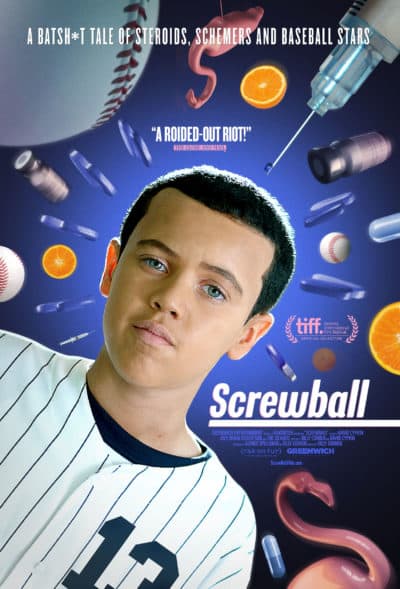
BC: Well, I don't knock his hustle. A-Rod is experiencing this — I can't even call it a resurgence in popularity. Because let's be real: he was never that popular to begin with. Yankees fans would boo him at home games, for crying out loud. I think his rebirth as a pop culture superstar, I think it’s really interesting, I think it’s a compelling element to this story.
KG: I don't want to put words in your mouth, but it sounds like you don't care what A-Rod thinks of your movie.
BC: No, no. Putting words in people's mouth is what our documentary is all about, if you think about it. But, no, listen: I can't image he would — he wouldn't get a kick out of it. It's all true, so I don't think he would argue with the facts of it. It's one of the most meticulously, if not the most meticulously researched documentary we have ever done. And listen — tonally, I think it's a lot of fun. And I think he might be at a place in his life — at least, I hope he is — where he's happy and he's healthy and he's successful and he can laugh at himself. I have no trouble laughing at him. I hope that he would have no trouble laughing at him either.
"Screwball" was released in select theaters this week.
This segment aired on March 30, 2019.

